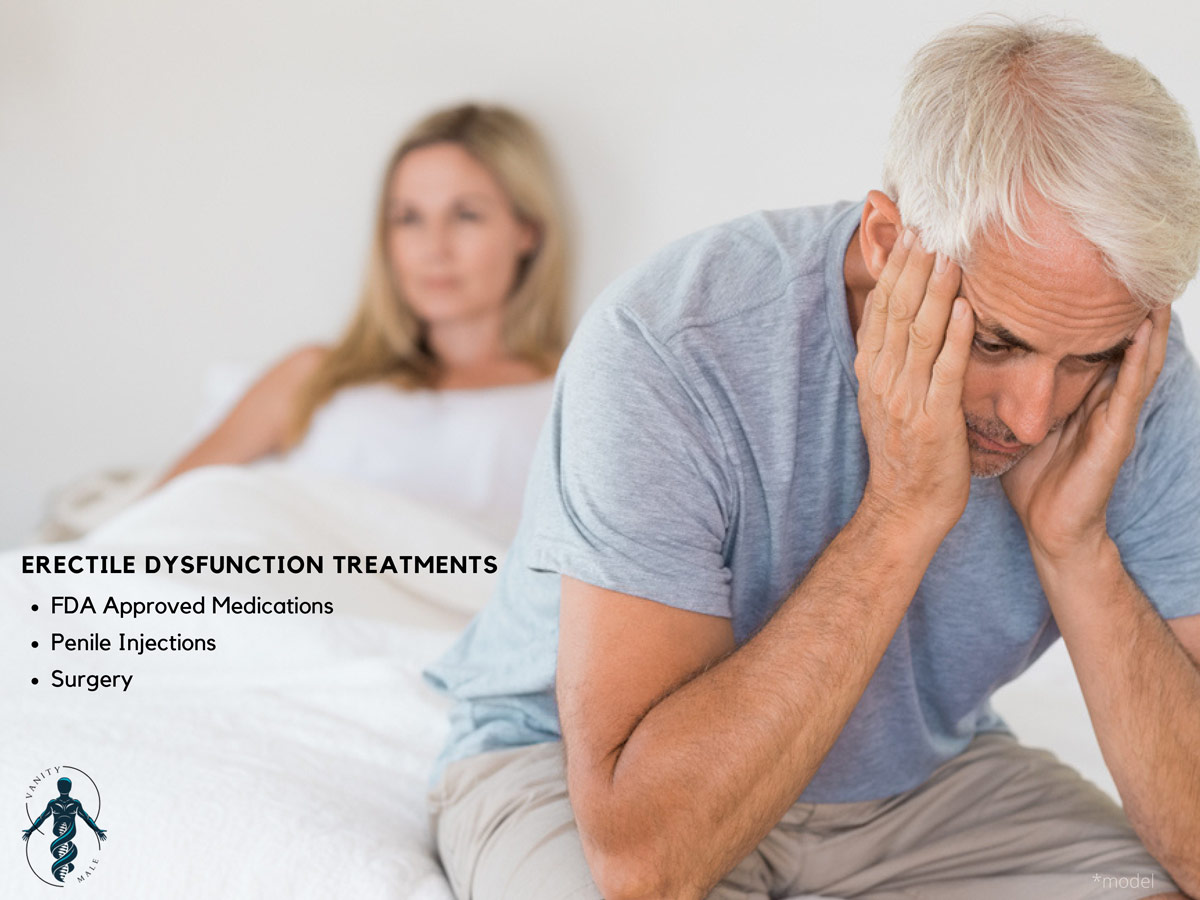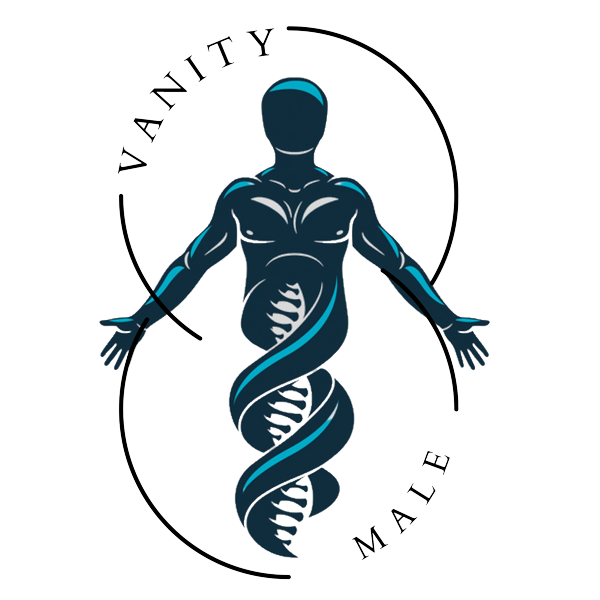People lead a happy and active sexual life unless there is any problem that interferes with their performance and makes them feel guilty about themselves.
One of such disorders is ‘Erectile Dysfunction’. In this disorder, a man cannot achieve a proper and well-maintained penile erection. This makes a man unable to engage in sexual intercourse, which in turn makes him feel embarrassed and worthless, thus adding to his mental and emotional stress.
Erectile Dysfunction, or ED, which was previously also known as ‘Impotence’ can occur due to a wide range of causes, which we have explored in the preceding sections.
When a man is sexually aroused, his nerves release chemicals that increase blood flow to the penis. This causes the spongy muscles in the penis to relax, and the oncoming, increased blood flow to accommodate itself in two chambers of the penis. As soon as the chambers fill up with blood, the penis goes rigid and is said to be in an ‘erect’ state.
As soon as the spongy muscles contract and the blood runs out of the chambers, the penis goes soft and limp, and the erection is lost.
This is the normal mechanism by which an erection takes place. Any factor that interferes with this mechanism or any other problem present in the body that limits the blood from reaching the penis or preventing the penis from trapping the blood can give rise to Erectile Dysfunction.

Treatment Options for Erectile Dysfunction
There is a wide range of treatment options are available for people with erectile dysfunction. We encourage such patients to come as early as possible so that their conditions could be diagnosed timely, and treatment could be started in time to achieve successful results in no time.
Instead of opting for invasive therapies, numerous recent therapeutic procedures have been introduced that are not only minimally invasive but have promising effects that last for a long time (years!) and have no side effects associated with them.
- Medications: There are three different medications available to treat patients’ mild to moderate erectile dysfunction. The first pill is Viagra, which was the first medication released on the market to treat this condition. The other two medications are Levitra and Cialis. All three of these medications are very safe and very effective.
- Injections: Another treatment option for erectile dysfunction is an injection, which requires a needle that is filled with a special medication to be directly inserted into the penis.
- Acoustic Wave Therapy (AWT): A treatment that uses low intensity shockwaves to create new blood vessels, thereby improving blood flow to the penis. This means that the treatment is particularly suitable for those with ED that is due to a medical factor such as cardiovascular disease, peripheral disease or diabetes.
- Surgery: In those men for whom other treatments do not work or do not produce satisfactory results, a penile implant may be considered. A penile implant is a device that is inserted into the penis during a half-hour operation performed under general anesthesia.

FAQs:
What is the difference between erectile dysfunction and impotence?
Erectile dysfunction is the term often used to describe a range of conditions — from an occasional inability to maintain or sustain an erection to a mild degree or inability to maintain or get an erection.
In contrast, the term “impotence” sounds very definitive, almost a complete inability to have an erection. This term has a very negative connotation. It sounds like it means a loss of power or no power, meaning that if a man has erectile dysfunction, he has lost his power.
What causes Erectile Dysfunction?
There are a number of conditions that can lead to erectile dysfunction in men, some of which include:
- Age: Even in the absence of the other health conditions, age becomes an independent risk factor for erectile dysfunction. The age that doctors usually consider to be a risk factor for erectile dysfunction is about 50. However, it is not uncommon for men in their 30s and 40s to have erectile dysfunction.
- Medications: Certain medications can cause erectile dysfunction. For example, those patients who have been prescribed beta blockers or other medications to lower their blood pressure will notice that these medications may also lower the blood pressure to their penis, which can interfere with their ability to get and maintain an erection.
- Obesity: Obesity is a risk factor for almost every medical problem that we encounter today, and erectile dysfunction is no exception.
- Other Medical Conditions: Often, general medical conditions that bring patients into the doctor, such as high blood pressure, high cholesterol or diabetes, can also bring patients in to see an urologist about erectile dysfunction.
What are the Symptoms and Causes of Erectile Dysfunction?
Erectile dysfunction symptoms might include persistent:
- Trouble getting an erection
- Trouble keeping an erection
- Reduced sexual desire
Male sexual arousal is a complex process that involves the brain, hormones, emotions, nerves, muscles and blood vessels. Erectile dysfunction can result from a problem with any of these. Likewise, stress and mental health concerns can cause or worsen erectile dysfunction.
Sometimes a combination of physical and psychological issues causes erectile dysfunction. For instance, a minor physical condition that slows your sexual response might cause anxiety about maintaining an erection. The resulting anxiety can lead to or worsen erectile dysfunction.
Are there any side effects to erectile dysfunction treatments?
Headaches:
Headaches are the most common side effect associated with ED medications. The sudden change in blood flow from the increased levels of nitric oxide causes the headaches.
This side effect is common with all forms of ED medications, so switching brands won’t necessarily alleviate your symptoms. If you have headaches from your ED drug, talk to your doctor about how to prevent them.
Body aches and pains:
Some people have muscle aches and pains throughout their bodies while taking ED medications. Others have reported specific pain in their lower back. If you have these types of pain while taking ED medication, over-the-counter (OTC) pain medication may help.
However, you should talk to your doctor about other possible causes of your pain. Your doctor can help you choose an OTC medication that is safe to take with your ED medications and with any other medications you take.
Digestive system problems:
Your ED medication may cause uncomfortable digestive system side effects. The most common are indigestion and diarrhea.
To help relieve minor problems, consider making dietary changes to reduce upset stomach. Drinking water instead of caffeinated beverages, alcohol, or juice may help. If changing your diet doesn’t work, talk to your doctor about OTC remedies that may help.
Dizziness:
An increase in nitric oxide can cause some men to become dizzy. The dizziness caused by ED medications is generally mild. However, any dizziness can cause discomfort during everyday activities.
In rare cases, dizziness from ED medications has led to fainting, which can become a serious health issue. You should tell your doctor if you experience dizziness while taking ED medications. If you faint while taking these medications, see your doctor right away.
Vision changes:
ED medications can change the way you see things — literally. They can temporarily alter your eyesight and even cause blurry vision. ED medications aren’t recommended if you have had vision loss, or a retinal disorder called retinitis pigmentosa.
A complete loss of vision or changes that don’t go away can signify a more serious issue with your ED medication. Seek emergency medical care if you experience these symptoms.
Flushes:
Flushes are temporary periods of redness of the skin. Flushes usually develop on your face and may also spread to parts of your body. Flushes can be mild, like blotchy skin, or severe, like rashes. Although the appearance may make you uncomfortable, flushes typically aren’t harmful.
Flushes from ED medications may get worse when you:
- Eat hot or spicy foods
- Drink alcohol
- Are outside in warm temperatures
- Congestion and runny nose
Congestion or a runny or stuffy nose can be a common symptom of ED medications. In most cases, these side effects go away without treatment. Talk to your doctor if they persist.
Recognizing uncommon, severe side effects
Minor side effects are common when taking ED medication. Still, there are a few side effects that aren’t as common, and some can even be dangerous. Severe side effects of ED medications can include:
- Priapism (erections that last longer than 4 hours)
- Sudden changes in hearing
- Vision loss
Contact your doctor immediately if you have any of these severe side effects.
Certain men are more at risk of these side effects than others. This may be because of other conditions they have or other medications they take.
When discussing ED treatment with your doctor, it’s important to tell them about all drugs that you take and other health conditions you have. If ED drugs aren’t right for you, your doctor may suggest other treatment options, such as surgery or vacuum pumps.
Stop Suffering from ED
If you live in the Bergen County area and are looking for treatment of erectile dysfunction or ED, contact us today to schedule an appointment and explore all options available.
We are happy to offer CareCredit financing program for our patients!
